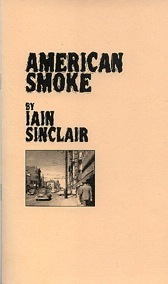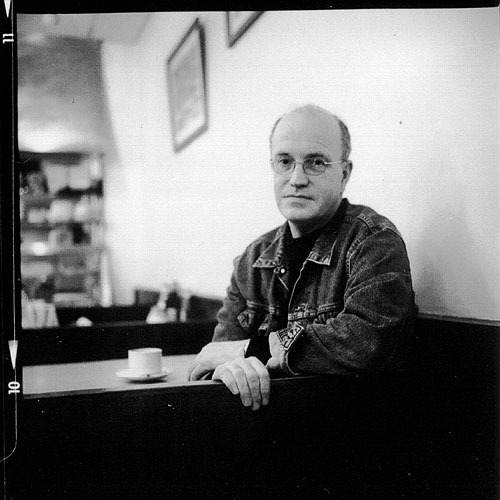
The visionary writer Iain Sinclair turns his sights to the Beat Generation in America in his most epic journey yet “How best to describe Iain Sinclair?” asks Robert Macfarlane in The Guardian. “A literary mud-larker and tip-picker? A Travelodge tramp (his phrase)? A middle-class dropout with a gift for bullshit (also his phrase)? A toxicologist of the twenty-first-century landscape? A historian of countercultures and occulted pasts? An intemperate WALL-E, compulsively collecting and compacting the city’s textual waste? A psycho-geographer (from which term Sinclair has been rowing away ever since he helped launch it into the mainstream)? He’s all of these, and more.” Now, for the first time, the enigma that is Iain Sinclair lands on American shores for his long-awaited engagement with the memory-filled landscapes of the American Beats and their fellow travelers. A book filled with bad journeys and fated decisions, American Smoke is an epic walk in the footsteps of Malcolm Lowry, Charles Olson, Jack Kerouac, William Burroughs, Gary Snyder, and others, heated by obsession (the Old West, volcanoes, Mexico) and enlivened by false memories, broken reports, and strange adventures. With American Smoke, Sinclair confirms his place as the most innovative of our chroniclers of the contemporary.
Author

Iain Sinclair is a British writer and film maker. Much of his work is rooted in London, most recently within the influences of psychogeography. Sinclair's education includes studies at Trinity College, Dublin, where he edited Icarus, the Courtauld Institute of Art (University of London), and the London School of Film Technique (now the London Film School). His early work was mostly poetry, much of it published by his own small press, Albion Village Press. He was (and remains) closely connected with the British avantgarde poetry scene of the 1960s and 1970s – authors such as J.H. Prynne, Douglas Oliver, Peter Ackroyd and Brian Catling are often quoted in his work and even turn up in fictionalized form as characters; later on, taking over from John Muckle, Sinclair edited the Paladin Poetry Series and, in 1996, the Picador anthology Conductors of Chaos. His early books Lud Heat (1975) and Suicide Bridge (1979) were a mixture of essay, fiction and poetry; they were followed by White Chappell, Scarlet Tracings (1987), a novel juxtaposing the tale of a disreputable band of bookdealers on the hunt for a priceless copy of Arthur Conan Doyle's A Study in Scarlet and the Jack the Ripper murders (here attributed to the physician William Gull). Sinclair was for some time perhaps best known for the novel Downriver (1991), which won the James Tait Black Memorial Prize and the 1992 Encore Award. It envisages the UK under the rule of the Widow, a grotesque version of Margaret Thatcher as viewed by her harshest critics, who supposedly establishes a one party state in a fifth term. The volume of essays Lights Out for the Territory gained Sinclair a wider readership by treating the material of his novels in non-fiction form. His essay 'Sorry Meniscus' (1999) ridicules the Millennium Dome. In 1997, he collaborated with Chris Petit, sculptor Steve Dilworth, and others to make The Falconer, a 56 minute semi-fictional 'documentary' film set in London and the Outer Hebrides about the British underground filmmaker Peter Whitehead. It also features Stewart Home, Kathy Acker and Howard Marks. One of his most recent works and part of a series focused around London is the non-fiction London Orbital; the hard cover edition was published in 2002, along with a documentary film of the same name and subject. It describes a series of trips he took tracing the M25, London's outer-ring motorway, on foot. Sinclair followed this with Edge of the Orison, a psychogeographical reconstruction of the poet John Clare's walk from Dr Matthew Allen's private lunatic asylum, at Fairmead House, High Beach, in the centre of Epping Forest in Essex, to his home in Helpston, near Peterborough. Sinclair also writes about Claybury Asylum, another psychiatric hospital in Essex, in Rodinsky's Room, a collaboration with the artist Rachel Lichtenstein. Much of Sinclair's recent work consists of an ambitious and elaborate literary recuperation of the so-called occultist psychogeography of London. Other psychogeographers who have worked on similar material include Will Self, Stewart Home and the London Psychogeographical Association. In 2008 he wrote the introduction to Wide Boys Never Work, the London Books reissue of Robert Westerby's classic London low-life novel. Hackney, That Rose-Red Empire: A Confidential Report followed in 2009. In an interview with This Week in Science, William Gibson said that Sinclair was his favourite author. Iain Sinclair lives in Haggerston, in the London Borough of Hackney, and has a flat in Hastings, East Sussex.